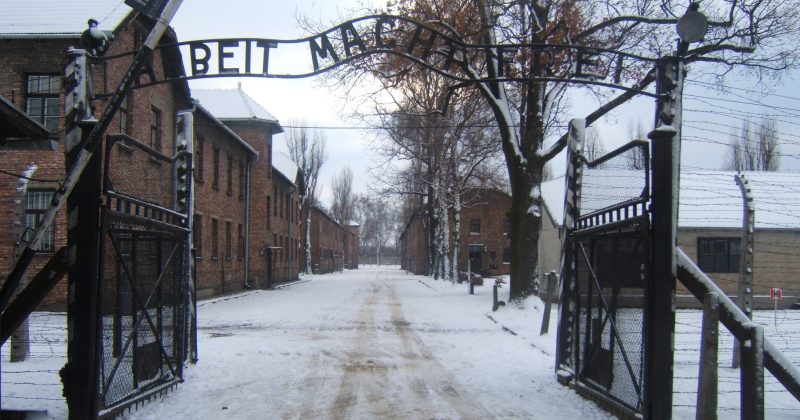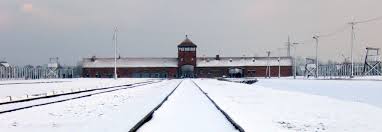Holly Loranger | January 14, 2020

In 2005, the United Nations designated January 27th as International Holocaust Remembrance Day to remember the 6 million Jewish victims and millions of other victims of the Nazi regime during the Holocaust and to promote Holocaust education in an effort to help prevent future genocides. The resolution establishing this commemoration, UN Resolution 60/7, also rejects any form of Holocaust denial. Additionally, UN Resolution 60/7 encourages the active preservation of sites used by the Nazis during the Holocaust and condemns all forms of “religious intolerance, incitement, harassment or violence against persons or communities based on ethnic origin or religious belief”, a reaffirmation of the Universal Declaration of Human Rights. This year’s commemoration, January 27th, 2020, marks the 75th anniversary of the liberation of Auschwitz-Birkenau. In addition to observing International Holocaust Remembrance Day, many countries around the world have established national days of remembrance connected to other events that took place during the Holocaust. You can read more about the history of the UN resolution that established International Holocaust Remembrance Day here.
The US Holocaust Memorial Museum will host a live broadcast of its 2020 International Holocaust Day Remembrance Commemoration on January 24th at 11:00 am. You can view the broadcast here. The USHMM commemoration ceremony will include remarks from Sweden’s ambassador to the United States, Her Excellency Karin Olofsdotter, reflections from Holocaust survivor Ruth Cohen and a Mourner’s Kaddish (prayer of remembrance) by Holocaust survivor Alfred Münzer.
Student Competition:
The Center for Holocaust, Genocide, and Human Rights Education is still accepting student entries for the 2020 Holocaust Commemoration Poster Competition for North Carolina Middle and High School Students: Courage, Compassion and Hope: Lessons from the Holocaust. The two categories, middle and high school, will be awarded a 1st prize of $100 and a 2nd prize of $75. The competition is designed to encourage students to think about acts of courage, compassion and hope that happened as a result of the Holocaust. Entries may be submitted until February 15th, 2020 and winners will be announced on March 15, 2020. Follow this link for more details and the entry form.
Highlighted Resources and Learning Opportunities:
There are numerous organizations, many of which are located right here in North Carolina, which offer learning resources, teaching materials and professional development opportunities for teaching and learning about the Holocaust.
- North Carolina Council on the Holocaust is an agency of the NC Department of Public Instruction. The Council provides teacher workshops and educational resources across the state. You can find more information about the Council, as well as teaching resources, survivor narratives, workshop information, and other resources by visiting by clicking here.
- The Center for Holocaust, Genocide and Human Rights Education of North Carolina (the Holocaust Speakers Bureau) inspires students and members of the community to respect the dignity of all human beings by teaching the challenging topics of the Holocaust, genocide and tolerance. The Center works with schools, museums, libraries and houses of worship to develop age-appropriate materials, presentations and programs. Visit their website to learn more and to find speakers, videos, events and resources.
- Centropa is a non-profit, Jewish historical institute dedicated to preserving 20th century Jewish family stories and photos from Central and Eastern Europe and the Balkans, and disseminating these stories and photos though films, books and exhibitions. Their website features multimedia films, teaching resources, student projects and competitions, professional development opportunities and more.
- NCCAT’s Holocaust Education Program, funded in part by the generous support of the Frank and Shelly Weiner Holocaust Education Teacher Training Endowment of NCCAT, provides opportunities for public school teachers to engage directly with survivors and with some of the most authoritative scholars in the field in the context of a carefully crafted learning community. Teachers grapple with ideas and concerns while building a strong network of like-minded colleagues. Learn more here.
- The Center for Judaic, Holocaust and Peace Studies at Appalachian State. Since 2002, the Center has organized and held the annual Martin & Doris Rosen Summer Symposium “Remembering the Holocaust.” Named for symposium benefactors, the late Doris and Martin Rosen, the symposium endeavors to provide teachers with the most current research on the Holocaust, racism, and anti-Semitism in tandem with teaching strategies and plans needed by every educator to tackle this urgent topic in an informed and successful manner in a classroom setting. Learn more here.
- Facing History and Ourselves aims to help students learn about hatred and bigotry in order to stop them from happening in the future. They offer learning materials and educator resources including curriculum units, books, teaching guides, articles, videos and more. Search the topic Holocaust here.
- Journeys in Film, a non-profit organization that believes in harnessing the storytelling power of film to educate the most visually literate generation in history, offers educator guides for working with feature films in the classroom. They offer materials for several films related to the Holocaust, including Schindler’s List, Defiant Requiem and Big Sonia. You can access their materials here.


